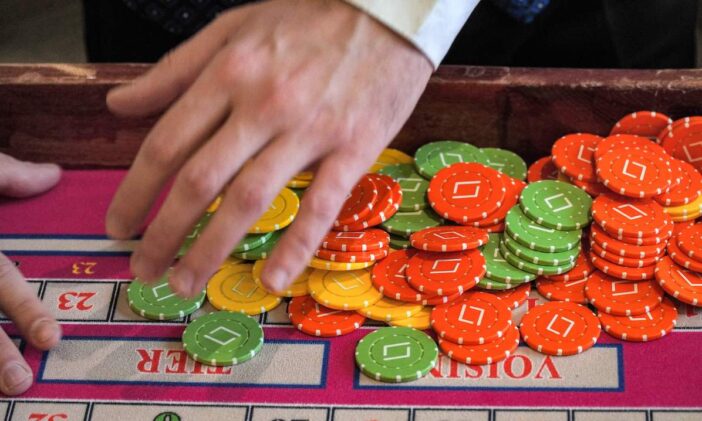An Ingham County Circuit Court judge ordered the Kewadin Casinos Gaming Authority to pay nearly $89 million to a group of investors last week in a lawsuit filed after deals to build new casinos in Detroit and Lansing fell apart.
The gaming authority, which operates under the Sault Ste. Marie Tribe of Chippewa Indians, must pay the investors $88.88 million, an amount that included the $8.8 million initial investment and projected profits the group may have made if the casinos had gotten up and running.
The ruling from Judge Joyce Draganchuk entitles investors to damages for breach of contract and fraudulent misrepresentation by the authority. The Kewadin Casinos Gaming Authority is expected to appeal the decision.
One of the projects was to build a casino near Detroit Metro Airport and the other was to locate one in downtown Lansing. Of the $88.88 million total, $60 million was awarded over the Huron Township casino near Metro Airport and the other $28.88 million was awarded for the unbuilt casino in Lansing, according to court documents.
In both casino projects, the tribe was unable to get the U.S. Department of the Interior to put the land for the sites into a trust, a necessary legal step for building off-reservation casinos.
Opposition from other casinos and tribes
The Huron Township casino would have operated in a vacant 71,000-square-foot megachurch near I-275 and, according to the Detroit Free-Press, encountered opposition from the three Detroit casinos and several other Michigan tribes that run casinos.
The Sault Ste. Marie tribe is the largest native tribe in Michigan and runs five small casinos in the Upper Peninsula. The tribe also opened Detroit’s Greektown Casino before losing it to bankruptcy in 2008.
The two non-tribe investor groups suing the gaming authority — JLLJ Development and Lansing Future Development II — sued over what they claimed were breached contracts in which investors provided temporary financing and Kewadin was to repay the financing through a portion of the casinos’ operating profits. The two investment groups include a total of 56 individuals.
In declining the tribe’s request for the Huron Township site, the Department of the Interior argued the tribe hadn’t proven that the proposal would satisfy a legal requirement that new land put into trust improved enhanced tribal lands, since the site is far from the Sault Ste. Marie tribe’s existing lands in the Upper Peninsula.
The tribe sued the Department of the Interior, and the U.S. District Court in the District of Columbia sided with the tribe, but the ruling was reversed by the District of Columbia Court of Appeals. The tribe argued it should owe zero damages because of sovereign immunity and a non-recourse provision in the development agreements. Draganchuk ruled the deals had clear waivers of sovereign immunity and that the non-recourse provisions don’t apply to the investors’ claim.
Photo: Shutterstock





